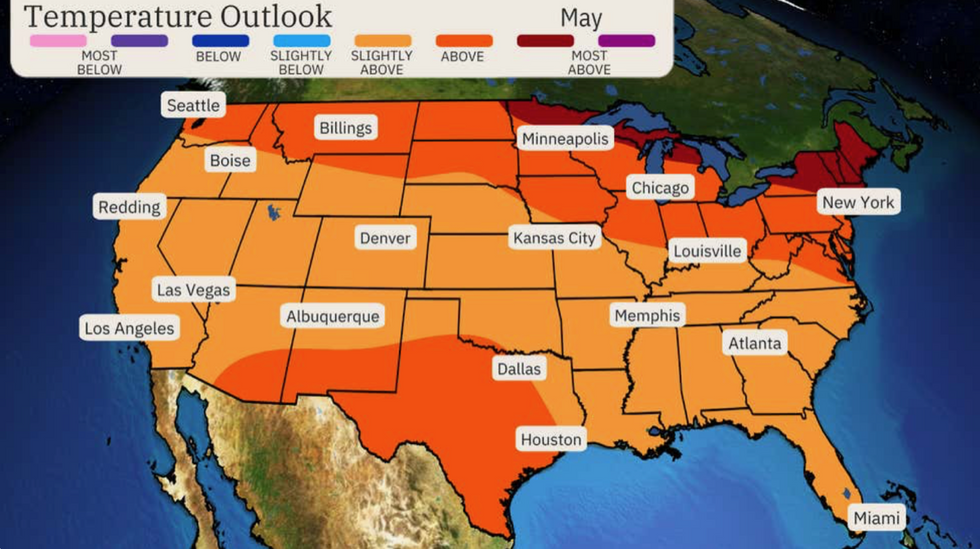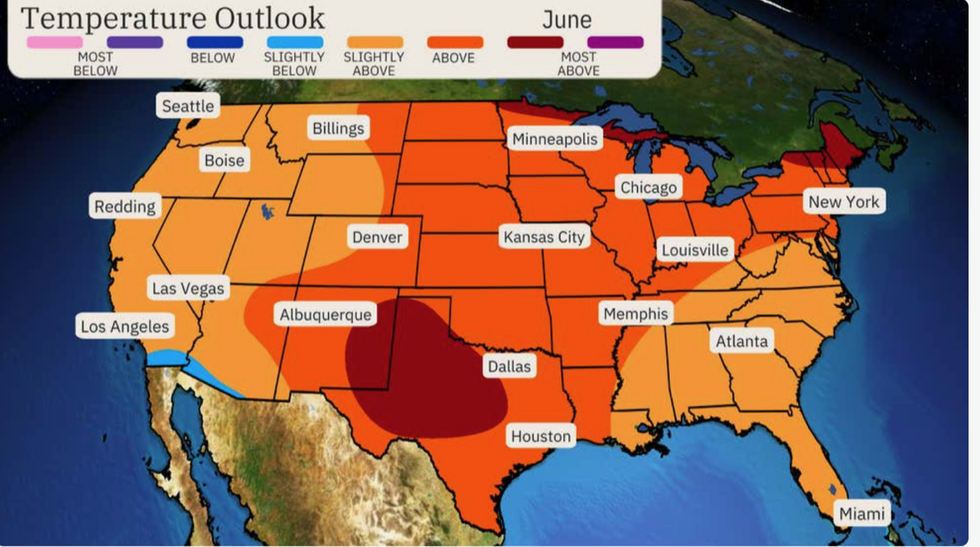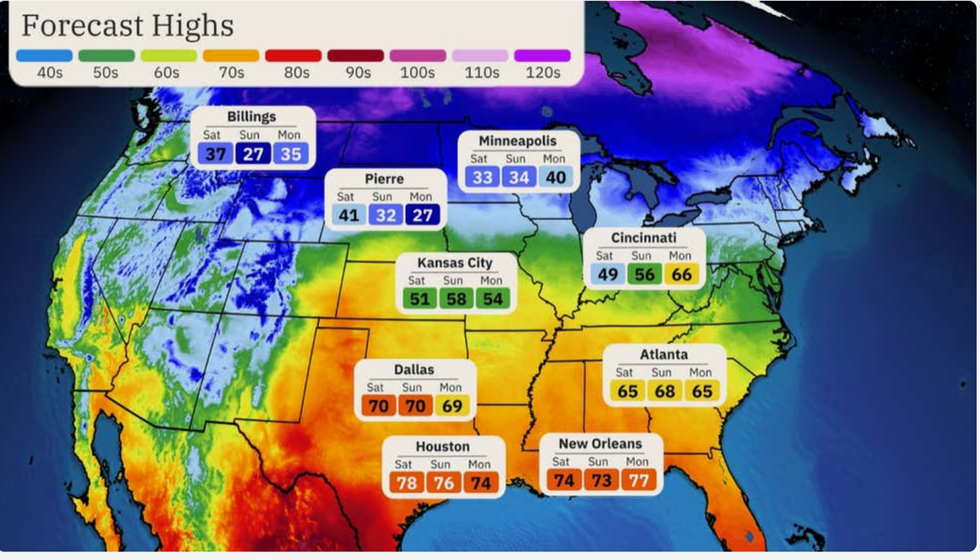Pollen is set to surge over the spring
Accuweather
Hayfever season could be pulled ahead by a month due to the high temperatures
Don't Miss
Most Read
Trending on GB News
Unseasonable warmth ahead of ‘one of America’s hottest summers on record’ threatens an ‘intense’ triple-peak pollen explosion.
Freakishly high temperatures already simmering parts of the country could pull the hayfever season ahead by a month.
Trees will be the first to spew pollen clouds followed by an ‘intense and prolonged’ grass season before weeds burst into action, according to Accuweather.
Senior meteorologist Alan Reppert said: “Warmer than historical average conditions in the mid-Atlantic and Northeast will make for a much quicker and more forceful start to the pollen season.

Temperatures will be rising in May
The Weather Channel
“For tree pollen, we could be looking at the season starting a full month ahead of normal, and it will be ahead when the grass-pollen season starts later in the spring.”
Recent heavy rain to the northwest and rising temperatures will trigger a ‘surge’ in weed pollen, he warned.
“Because of recent heavy rain, high levels of moisture will drive a rapid surge in weed pollen over the Pacific Northwest,” he said.
An Accuweather spokesperson added: “An intense and prolonged grass pollen season is forecast for the interior Northeast and Midwest.
“Some areas of the Pacific Northwest could also experience elevated grass pollen levels throughout the summer.
“Allergy sufferers should prepare for a longer allergy season with three different peaks in pollen levels.”
It comes amid warnings the transition from El Nino to La Nina – expected in the coming weeks – will plunge swathes of the US into a hotter than average spring and summer.
LATEST DEVELOPMENTS:

June will see temperatures even higher
The Weather Channel
El Nino, an unusual warming of ocean waters around South America, set in last year and is finally beginning to wane.
Its intensity and current rapid weakening have prompted warnings it may pendulum swing into a La Nina event, which leads to cooling sea waters.
These ingredients are expected to drive a fiercely hot spring and summer, and with it, the risk of extended high pollen counts.
Spring is shaping up to be warmer than average across northern states, with summer likely to follow suit.
The next few months could bring some of the highest temperatures on record, according to The Weather Channel and Atmospheric G2.
A Weather Channel spokesman said: “Spring will skew warmer than usual in much of the United States, particularly in the northern tier, and that could be followed by one of the nation's hottest summers on record.
“One of the biggest drivers to the outlook is the continued weakening of El Nino and the increasing likelihood of La Nina by summer.

The South is seeing the highest temperatures
The Weather Channel
“Long-term warming of the planet over the past several decades is also a contributor.”
Todd Crawford, vice president of meteorology at Atmospheric G2, added: “We expect the most anomalous summer heat to extend from the southern Rockies to the Great Lakes and Northeast.
“The idea that August will be the warmest of the three summer months, relative to normal, matches the climate model output and analogues as well, adding some confidence to the idea of a back-loaded summer."
La Nina is the ‘kettle’ which is just about to hit the boil to turn the heat up on spring and summer, according to Jim Dale of British Weather Services.
Mr Dale, a US weather correspondent, said: “La Nina has got to rev-up properly before we see the effect it will have on the summer.
“It is the kettle which is just starting to get boiling, and if it does, a warm spring could be on the cards.
“What is very much more likely, given the overall pattern of warmer summers, is that we could be looking at heatwave conditions in the United States at times through the coming months.”








